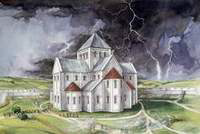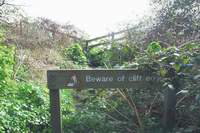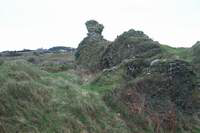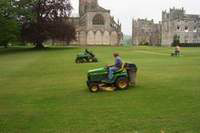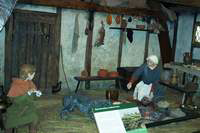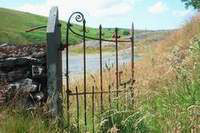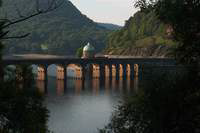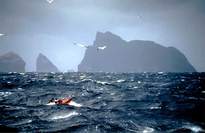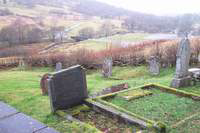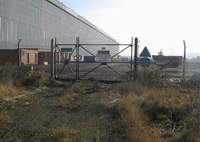Soon after the Norman Conquest Sarum was a city with a castle and a royal palace,
and a cathedral. In 1220 work started on a new cathedral in Salisbury, and before
long the city had moved to its new site.
Kenfig, a town near the coast of South Wales, was covered by sand dunes. You might
assume it was a natural disaster, but it was human action that allowed the sand dunes
to become unstable and advance inland.
Dunwich was a major sea port in Suffolk until it was demolished by coastal erosion.
During the middle ages Wharram Percy was a small village in Yorkshire. The tenants were evicted from the last four dwellings around 1500 to allow the village to be enclosed for sheep pasture.
Milton was a town closely associated with the abbey of Middleton in Dorset. It was removed in the 1770s by the landowner, who wanted to turn the estate into a large park
Dylife was a thriving lead mining community during most of the nineteenth century, but falling lead prices meant that it became unprofitable. When it closed there was no other significant employment in the area. All its residents moved away.
At the beginning of the nineteenth century there were about forty small settlements
in Strathnaver. The inhabitants were evicted between 1814 and 1819 to make way for
sheep farming.
Between 1880 and the 1960s several reservoirs were created in Wales to provide water to Liverpool and the English Midlands. Farming communities and small villages had to be submerged under the water.
People lived on the island of Hirte, one of the St Kilda group of islands, for a
thousand years. In 1930 they asked to be evacuated. Their way of life was no longer
viable.
Mynydd Epynt, now in the county of Powys, was once home to a Welsh speaking farming community. It was taken over by the War Office in 1940, and is still used for military training.
In 1920 a community was created at Teesport when a submarine base was turned into housing. The housing was condemned in 1934 and everyone had to leave.
